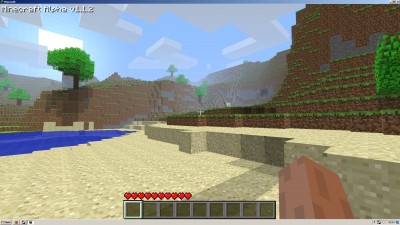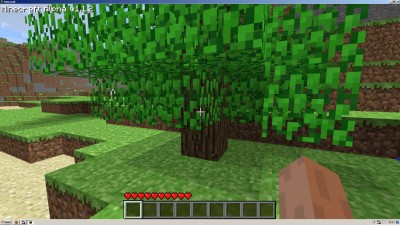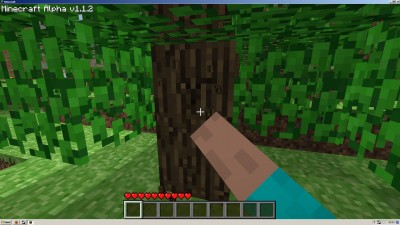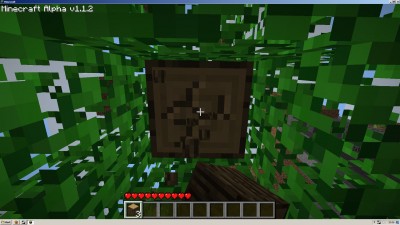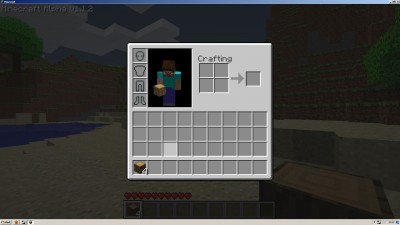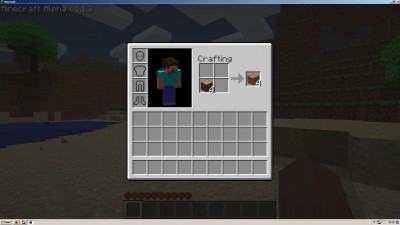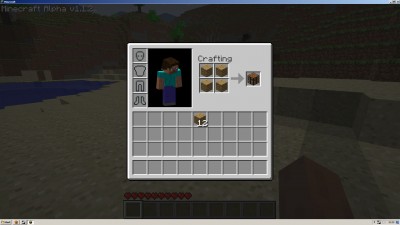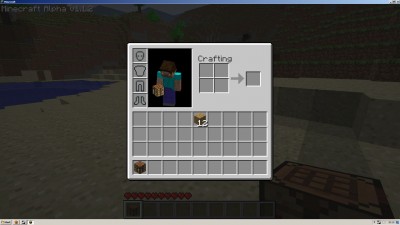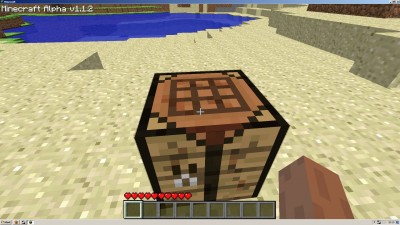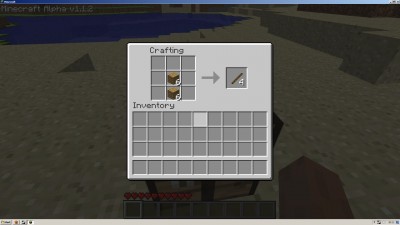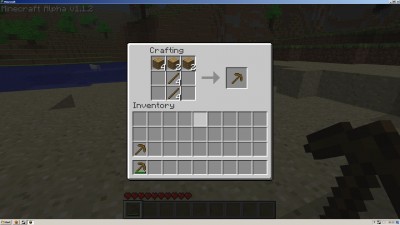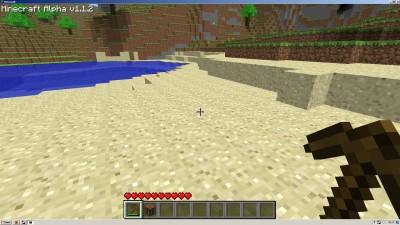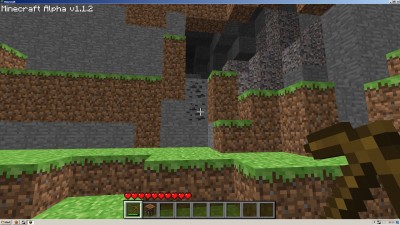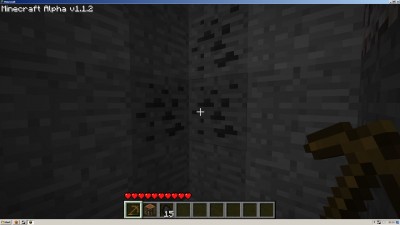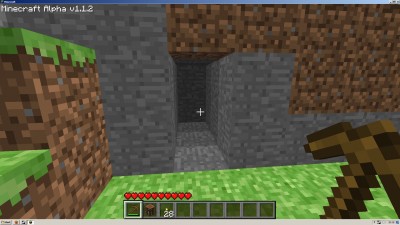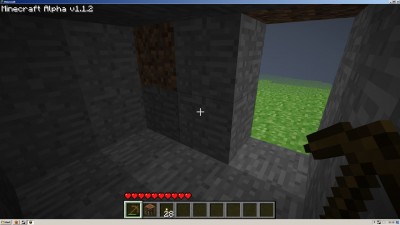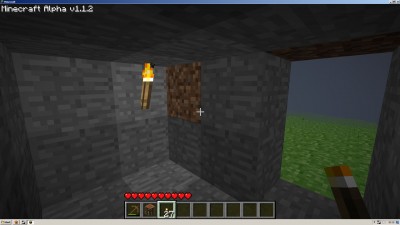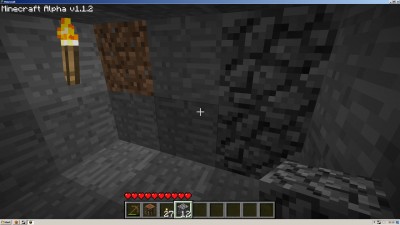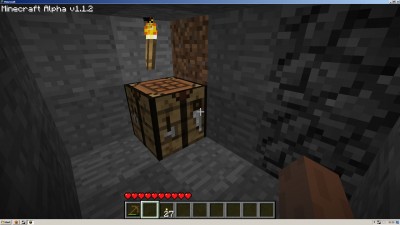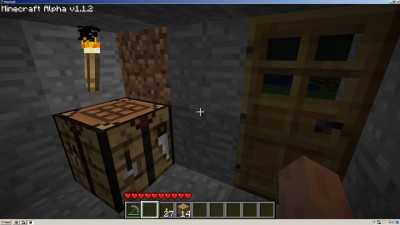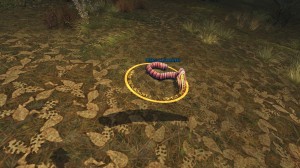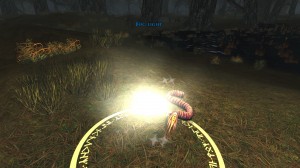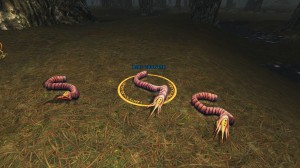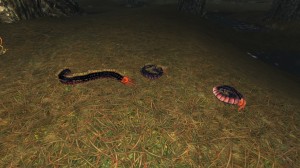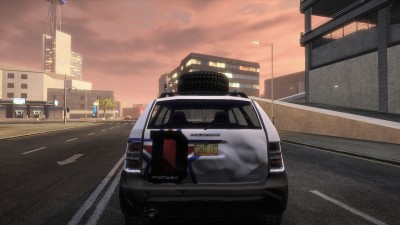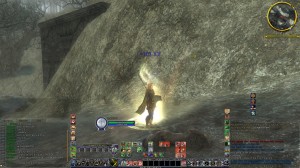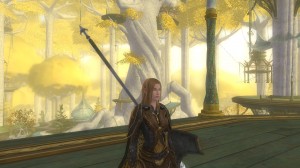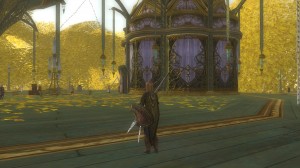Last night, having passed through the tutorial turnstile at the entrance, I pushed my head through the heavy curtains draped across the doorway leading to Runes of Magic’s circus tent and peered around at the main show. Runes of Magic is definitely its own game, from the intriguing dual-class system to its pick’n’mix revenue model, there is enough here to make it stand out from the obvious point of comparison, the everyman’s point of comparison: World of Warcraft. Runes of Magic, and games like it, are always going to have a great deal of difficulty standing out against WoW, they are but small carnivals pitched on the borders of a vast amusement park, corporation concrete and polished chrome, whose rows of streamlined rides, safe but sterile, stretch all the way to the horizon.
As such, the smaller carnival games need to put on a grand display, to draw-in their customers, convince them to roll up, roll up and witness the wonders of their world, to see the bearded ladies and lizard men and midgets, to show them that lion tamers and trapeze artists can still hold sway and bring joy in this age of homogenous techno-marvels.
But it’s the danger that any entity risks when it becomes so large that it has difficulty defining its own boundaries: in presenting a clean, clinical, wart-free experience World of Warcraft risks losing any sense of character, with nothing to really challenge players the game becomes a processing facility, paying customers are injected at one end, and desensitised burnt-out husks are ejected at the other. I think Wrath of the Lich King came dangerously close to this with the relative trivialising of heroics and raiding; their error being, I believe, in confusing accessibility with difficulty. But Blizzard is in the process of renovating the amusement park, rejuvenating old rides to get people interested in them again as well attracting new customers, and at the same time they’re probably reviewing the layout of the park in a strange inverse reflection of the process that real life amusement parks go through. Disney World and the like are optimised to keep the flow of people moving between rides so that no one ride becomes overwhelmed, exits from rides will lead people to other rides or, more likely, shops where they can spend even more money with the park. World of Warcraft currently has this down to an art, and it turns out that it’s actually the wrong philosophy for a subscription-based MMO. What they need to be doing is keeping people on the same ride for as long as possible before sending them off to the next. As evidence, very few players come even close to getting the World Explorer achievement by the time they reach the end of the game because the streamlined system carries them on a rapid current that encourages them to not explore the banks of the river, but instead stay in the fast running waters, until the sudden and unexpected plunge over the waterfall of progress into the churning pool of raiding at its end.
For me the problem with Runes of Magic was that it tried so hard to pull me in that I found myself overwhelmed by the experience, and as a consequence it teetered on the edge of driving me away. I couldn’t help but compare my first levels in the game with those of WoW because the two games share similarities that have been pointed out by numerous other commentators already. Graphically and mechanically Runes of Magic is like looking at WoW through a hall of mirrors, everything is brighter, louder and more in your face, while being twisted into strange caricatures of the original. At best amusing, at worst confusing. It’s not that Runes of Magic is particularly difficult to get to grips with, it’s more like culture shock. Like a naive tourist from the West, comfortable with their cavernous shopping malls – those sanitised glass and tile cathedrals to the Gods of consumerism – visiting a heaving Arabian bazaar, totally unprepared for the personal, intimate, rustic, ritualistic orgy of acquisition. Neither shopping experience being right or wrong, you understand, just a matter of local culture or religion. Everything in Runes of Magic seemed to pull at me and attempt to barter for my attention. The system messages were perhaps the most stark, so long were they that they couldn’t simply be flashed up on your screen and then left in your chat log should you wish to review them again at your convenience, instead a scrolling stock-market-style ticker bar appears towards the top of the screen, and the full message is scrolled slowly along, thus giving the game time and space to present the hard sell for the item you ‘need’ to buy in the store to participate in the latest seasonal event.
In a way, what we are experiencing is The Cathedral and the Bazaar for MMO revenue streams, the Amusement Park and the Carnival, as it were.
The carnival is growing in popularity, and even the bigger developers such as Turbine are packing up their shows and taking them on the road, opening themselves up to a much wider audience that couldn’t otherwise have justified the expense of travelling to them. The show in the main tent is free to all, but doesn’t last long. You can go back as many times as you like, but it starts to get repetitive after a while. However you can experience the vast array of mad and magnificent side shows, for a price. The problem for the carnivals up until now is that they had to be brash, shout loudly, and flaunt young girls in their chainmail underwear, just to get the attention of the people taking their regular vacation to Warcraft World, and this can often be enough to put off those potential new customers, unaccustomed as they are to the in-your-face tactics of the ringmaster or bazaar shopkeeper. With Turbine moving into the arena things are perhaps set to change. They have an established name behind their travelling show, and they don’t need to be quite as brazen with their sales technique, it’s a more subtle sell than other games in the market, and although you should have no doubt that they are constantly trying to sell you things, a game like Lord of the Rings Online does not beat you around the head with it from the very moment you set foot in there. There’s a fine line to be trod when it comes to the pick’n’mix model of MMO revenue, convincing people to take in the main show and not driving them off is the first part of this, and it’s an area where I think games such as Runes of Magic struggle, but where established games that convert to this new revenue model can excel. The outcome of this is potentially a samurai-like double cut on Turbine’s part, where they introduce a large population of comfortable subscribers to the ideas of a pick’n’mix model, while at the same time introducing the pick’n’mixers to the idea that an accomplished top tier game can exist comfortably within their sphere of the MMO market, thus forcing other developers in the free to play market to raise their game.
